
Day Trading For Dummies, 3rd Edition
Published by: John Wiley & Sons, Inc., 111 River Street, Hoboken, NJ 07030-5774, www.wiley.com
Copyright 2014 by John Wiley & Sons, Inc., Hoboken, New Jersey
Published simultaneously in Canada
No part of this publication may be reproduced, stored in a retrieval system or transmitted in any form or by any means, electronic, mechanical, photocopying, recording, scanning or otherwise, except as permitted under Sections 107 or 108 of the 1976 United States Copyright Act, without the prior written permission of the Publisher. Requests to the Publisher for permission should be addressed to the Permissions Department, John Wiley & Sons, Inc., 111 River Street, Hoboken, NJ 07030, (201) 748-6011, fax (201) 748-6008, or online at http://www.wiley.com/go/permissions .
Trademarks: Wiley, For Dummies, the Dummies Man logo, Dummies.com, Making Everything Easier, and related trade dress are trademarks or registered trademarks of John Wiley & Sons, Inc., and may not be used without written permission. All other trademarks are the property of their respective owners. John Wiley & Sons, Inc., is not associated with any product or vendor mentioned in this book.
LIMIT OF LIABILITY/DISCLAIMER OF WARRANTY: WHILE THE PUBLISHER AND AUTHOR HAVE USED THEIR BEST EFFORTS IN PREPARING THIS BOOK, THEY MAKE NO REPRESENTATIONS OR WARRANTIES WITH RESPECT TO THE ACCURACY OR COMPLETENESS OF THE CONTENTS OF THIS BOOK AND SPECIFICALLY DISCLAIM ANY IMPLIED WARRANTIES OF MERCHANTABILITY OR FITNESS FOR A PARTICULAR PURPOSE. NO WARRANTY MAY BE CREATED OR EXTENDED BY SALES REPRESENTATIVES OR WRITTEN SALES MATERIALS. THE ADVICE AND STRATEGIES CONTAINED HEREIN MAY NOT BE SUITABLE FOR YOUR SITUATION. YOU SHOULD CONSULT WITH A PROFESSIONAL WHERE APPROPRIATE. NEITHER THE PUBLISHER NOR THE AUTHOR SHALL BE LIABLE FOR DAMAGES ARISING HEREFROM.
For general information on our other products and services, please contact our Customer Care Department within the U.S. at 877-762-2974, outside the U.S. at 317-572-3993, or fax 317-572-4002. For technical support, please visit www.wiley.com/techsupport .
Wiley publishes in a variety of print and electronic formats and by print-on-demand. Some material included with standard print versions of this book may not be included in e-books or in print-on-demand. If this book refers to media such as a CD or DVD that is not included in the version you purchased, you may download this material at http://booksupport.wiley.com . For more information about Wiley products, visit www.wiley.com .
Library of Congress Control Number: 2013954192
ISBN 978-1-118-77960-6 (pbk); ISBN 978-1-118-80813-9 (ebk); ISBN 978-1-118-80808-5 (ebk)
Manufactured in the United States of America
10 9 8 7 6 5 4 3 2 1
Chapter 1
So You Want to Be a Day Trader
In This Chapter
 Figuring out just what day traders do
Figuring out just what day traders do
 Setting up a trading business
Setting up a trading business
 Concentrating on a few assets, a few dollars at a time
Concentrating on a few assets, a few dollars at a time
 Knowing what being a successful trader takes
Knowing what being a successful trader takes
 Dispelling a few day-trading myths
Dispelling a few day-trading myths
Make money from the comfort of your home! Be your own boss! Beat the market with your own smarts! Build real wealth! Tempting, isn't it? Day trading can be a great way to make money all on your own. It's also a great way to lose a ton of money all on your own. Do you have the fortitude to face the market every morning?
Day trading is a crazy business. Traders work in front of their computer screens, reacting to blips, each of which represents real dollars. They make quick decisions because their ability to make money depends on successfully executing a large number of trades that generate small profits. They close out their positions in the stocks, options, and futures contracts they own at the end of the day, which limits some of the risks nothing can happen overnight to disturb an existing profit position but those limits on risk can limit profits. After all, a lot can happen in a year, increasing the likelihood that your trade idea will work out, but in a day? You have to be patient and work fast. Some days offer nothing good to buy. Other days, every trade seems to lose money.
The individual human-being day trader is up against a tough opponent: high-frequency algorithms programmed and operated by brokerage firms and hedge funds that have no emotion and can make trades in less time than it takes to blink your eye. If you're not prepared for that competition, you will be crushed.
In this chapter, I cover what day traders do, share the advantages and disadvantages of day trading, list the personality traits of successful day traders, and give you information on your likelihood of success. You may find that day trading is a great career option that takes advantage of your street smarts and clear thinking or that the risk outweighs the potential benefits. Either is okay: The more you know before you make the decision to trade, the greater your chance of being successful. If you decide that day trading isn't right for you, you can apply strategies and techniques that day traders use to improve the performance of your investment portfolio.
It's All in a Day's Work: Defining Day Trading
The definition of day trading is that day traders hold their securities for only one day. They close out their positions at the end of every day and then start all over again the next day. By contrast, swing traders hold securities for days and sometimes even months; investors sometimes hold for years. The short-term nature of day trading reduces some risks, because nothing can happen overnight to cause big losses. Meanwhile, many other types of investors go to bed thinking their position is in great shape only to wake up the next morning to find that the company has announced terrible earnings or that its CEO is being indicted on fraud charges.
But there's a flip side (there's always a flip side, isn't there?): The day trader's choice of securities and positions has to work out in a day, or it's gone. Tomorrow doesn't exist for any specific position. Meanwhile, the swing trader or the investor has the luxury of time, because it sometimes takes a while for a position to work out the way your research shows it should. In the long run, markets are efficient, and prices reflect all information about a security. Unfortunately, a few days of short runs may need to occur for this efficiency to kick in.
 Day traders are speculators working in zero-sum markets one day at a time. That makes the dynamics different from other types of financial activities you may have been involved in. When you take up day trading, the rules that may have helped you pick good stocks or find great mutual funds over the years no longer apply. Day trading is a different game with different rules.
Day traders are speculators working in zero-sum markets one day at a time. That makes the dynamics different from other types of financial activities you may have been involved in. When you take up day trading, the rules that may have helped you pick good stocks or find great mutual funds over the years no longer apply. Day trading is a different game with different rules.
Speculating, not hedging
Professional traders fall into two categories: speculators and hedgers. Speculators look to make a profit from price changes. Hedgers look to protect against a price change. They make their buy and sell choices as insurance, not as a way to make a profit, so they choose positions that offset their exposure in another market.
Next page
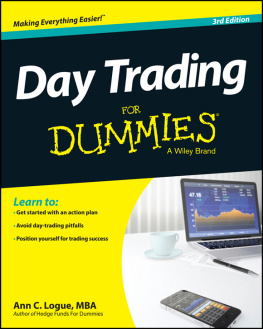


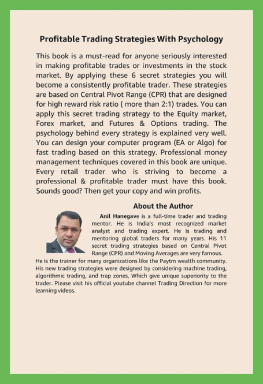
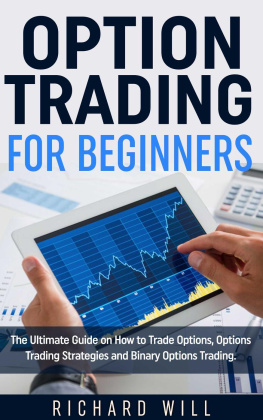
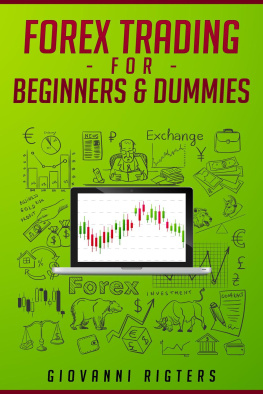
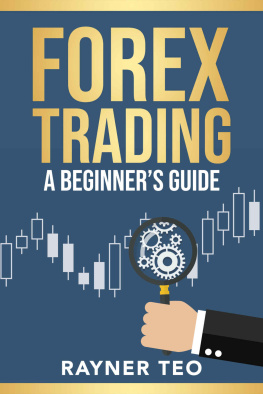
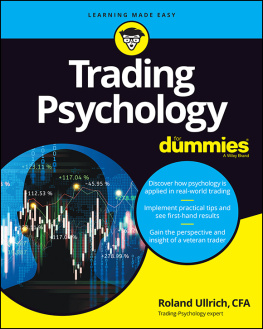
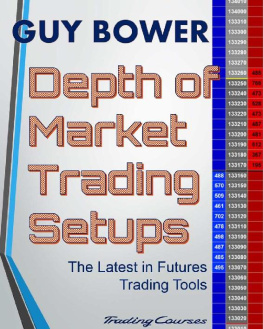
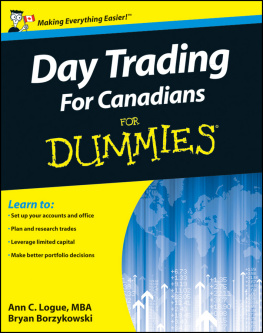

 Figuring out just what day traders do
Figuring out just what day traders do Day traders are speculators working in zero-sum markets one day at a time. That makes the dynamics different from other types of financial activities you may have been involved in. When you take up day trading, the rules that may have helped you pick good stocks or find great mutual funds over the years no longer apply. Day trading is a different game with different rules.
Day traders are speculators working in zero-sum markets one day at a time. That makes the dynamics different from other types of financial activities you may have been involved in. When you take up day trading, the rules that may have helped you pick good stocks or find great mutual funds over the years no longer apply. Day trading is a different game with different rules.